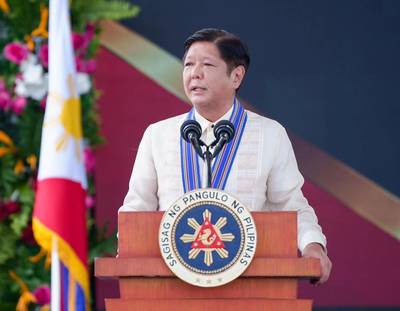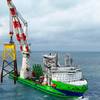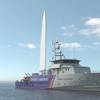Philippines President Orders De-Escalation in South China Sea
Philippine President Ferdinand Marcos Jr has ordered his armed forces to defuse tensions in the South China Sea, his military chief said on Thursday, after a flare-up with China over missions to resupply Filipino troops on a contested shoal.
Marcos' instructions came after Manila and Beijing agreed on the need to restore trust and confidence to better manage maritime disputes during a round of talks which Manila hosted on Tuesday.
But that did not stop the Philippine military from calling for China to return the firearms that its coast guard seized from Filipino navy personnel and pay around $1 million in compensation for damaging vessels involved in last month's resupply mission to Second Thomas Shoal.
"I demanded the return of seven firearms," General Romeo Brawner told reporters following a command conference with Marcos. "We are demanding that China pay 60 million pesos for the damage they caused during that (incident)."
Manila has accused the China Coast Guard of intentionally ramming and deliberately puncturing navy vessels and seizing weapons to disrupt the resupply mission on June 17, seriously injuring a Filipino sailor who lost a finger. The Philippines maintains a rusting warship manned by a small crew that it ran aground on Second Thomas Shoal in 1999 to reinforce its maritime claims.
Brawner said the military is looking at the possibility of charging China with the cost of reconstructing the finger of the injured sailor.
China, which claims most of the South China Sea as its own territory, has maintained that its actions in the waterway, a key conduit for trade between Asia and Europe and the Middle East, have been lawful and professional.
"The Philippines should bear the consequences of its infringing behavior," Chinese foreign ministry spokesperson Mao Ning told a briefing.
She said the Philippine side "was the first to provoke by illegally transporting supplies".
Beijing rejects the 2016 ruling by The Hague-based Permanent Court of Arbitration which said its expansive maritime claims had no legal basis.
The Philippine military presented the president with several options on its operations in the South China Sea, but they will not result in significant changes to how resupply operations were being carried out, Brawner said, without giving details.
"The end goal is still to be able to bring supplies to our troops...to be able to practice freedom of navigation and overflight, without necessarily escalating the situation you're in," Brawner said.
In the same briefing, Brawner said the Philippines' armed forces will also coordinate with a senator who claimed to have knowledge of a Chinese plan to target her country with hypersonic missiles.
Senator Imee Marcos, the president's sister and head of the senate foreign relations committee, created a stir earlier this week with her video, posted on Tik Tok. She has provided no evidence for the claim.
The Chinese foreign ministry said it does not know where the claims came from, but maintained Beijing adheres to a defensive national defence policy and does not pose a threat to any country.
"Of course, we will never sit idly by and watch our legitimate rights and interests and regional peace and stability being violated and threatened," Mao said.
Beijing had previously condemned the deployment of a U.S. intermediate range missile system on Philippine soil during joint military exercises in April and May.
An army spokesperson confirmed the Typhon missile launcher remains deployed in the Philippines' northern islands, and there was no specific date yet as to when it would be "shipped out".
Manila has sought wider international support on its maritime claims, seeking closer ties with countries to advocate for a rules-based order that recognises international law.
Brawner said he was hopeful an agreement allowing the militaries of the Philippines and Japan to visit each other's country would be signed during a meeting between their defence and foreign ministers on July 8.
(Reuters - Reporting by Karen Lema and Mikhail Flores; Additional reporting by Mei Mei Chu in Beijing; Editing by Poppy McPherson, Devjyot Ghoshal and Lincoln Feast.)














